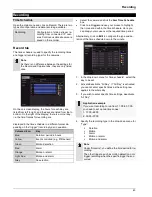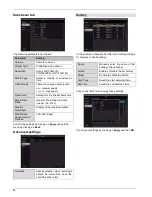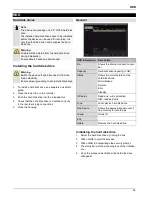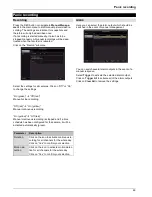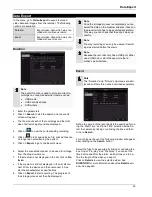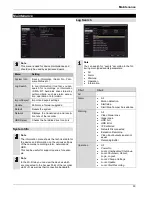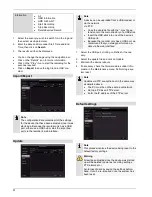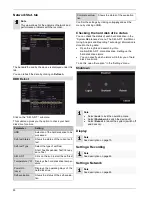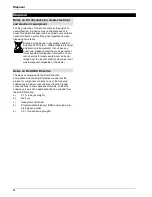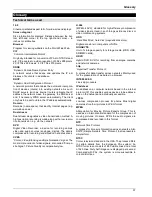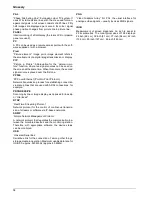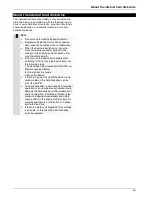
Glossary
Glossary
Technical terms used
16:9
Cinema orientated aspect ratio for wide-screen displays.
Screen diagonal
Size information for displays: Distance between the bot-
tom left-hand corner to the top right-hand corner – in
inches or centimetres.
Browser
Program for viewing websites on the World Wide Web.
CIF
‘Common Intermediate Format’.
Originally intended for conversion of PAL to NTSC stand-
ard. CIF equates to a video resolution of 352 x 288 pixels,
2 CIF 704 x 288 pixels, 4 CIF 704 x 576 pixels.
DDNS
‘Dynamic Domain Name System Entry’
A network service that keeps and updates the IP ad-
dresses of its clients in a database.
DHCP
‘Dynamic Host Configuration Protocol’
A network protocol that enables the automatic incorpora-
tion of devices (clients) into existing networks. As such,
DHCP servers (such as internet routers) allocate the IP
address, the network mask, the gateway, the DNS server
and, if necessary WINS server automatically. The client
only has to be set to obtain the IP address automatically.
Domain
Domains (name space) that identify Internet pages (e.g.
www.abus-sc.de).
Dual stream
Dual stream designates a video transmission method. A
high resolution recording is made along with a low resolu-
tion transmission, e.g. via the network.
DVR
Digital Video Recorder; a device for recording various
video and audio sources (analogue, digital). The data is
compressed for recording and stored on hard disk drives.
CVBS
“Colour, Video, Blanking and Synchronisation” signal. The
most simple variant of video signals, also called “Compo-
site Signal”. Picture Quality is comparatively low.
H.264
(MPEG-4 AVC); standard for high-efficiency compression
of video signals. Used in such things as Blu-ray discs or
video conferencing systems.
HDD
‘Hard Disk Drive’, hard disk (magnetic disk store)
Digital data store in computers or NVRs.
GIGABYTE
Unit of storage capacity for storage media (HDD, USB,
SD/MMC cards).
HDVR
Hybrid DVR, DVR for recording from analogue cameras
and network cameras.
http
‘Hypertext Transfer Protocol’;
A process for data transfer across networks. Mainly used
for the presentation of websites in a browser.
INTERLACED
Line skip procedure
IP address
An address on a computer network based in the internet
protocol (IP), this enables various devices to be address-
able on the network and individually accessible.
JPEG
Low-loss compression process for photos. Most digital
cameras store their pictures in JPEG format
MPEG
Abbreviation for Moving Picture Experts Group. This is
used as an international standard for the compression of
moving pictures. On some DVDs the audio signals are
compressed and recorded in this format.
NTP
Network Time Protocol
A process for time synchronisation across networks. Also
SNTP (Simple Network Time Protocol) that represents a
simpler form.
NTSC
Colour television standard in the USA. The process differs
in certain details from the European PAL system: An
NTSC full screen consists of 480 visible lines and a total
of 525 lines. Sixty half images are displayed per second.
Compared with PAL, the system is more susceptible to
colour distortions.
57

